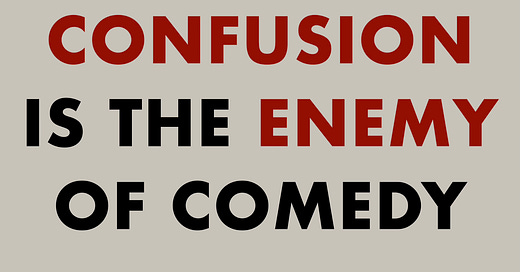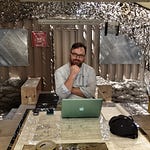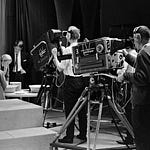I like jokes. I like laughing. Out loud. I quite like smiling. And I quite the like feeling of having spotted something really subtle. But I think I like laughing the best.
I fully appreciate that some people don't like laughing. Somehow, some of them are TV critics. It's understandable to some extent. Most comedies wouldn't seem all that funny when played on a preview disc at 11am in a brightly lit lounge on a Tuesday morning. Also, some critics simply consider laughing to be beneath them. AA Gill is one, as I pointed out here. Let us remind ourselves of why he liked TV series Lead Balloon:
This series is part of a new trend of comedy shows that don't make you laugh; you just nod your head and mutter, “That's really funny.” It’s a Darwinian improvement on the tyranny of the set-up-gag guffaw, and I approve of it. Laughter is ugly and common.
Thanks, Mr Gill. I'll bear that in mind for all your futures reviews about comedy.
Since writing that review, Mr Gill spent two pages saying how loathsome and shameful my TV series Bluestone 42 was. Although it stung a little, I was slightly relieved. If he’d said the show was ‘laugh-out-loud funny’, I would have been really worried.
Learning From Geniuses Genii Legends
So how do we write those funny jokey lines of dialogue? Well, there’s a sense in which it’s a natural talent, but I’ve learned a lot from people who make it look easy, but having worked with them, I know it’s hard work as much as anything else.
I’ve written seven radio series with comedian Milton Jones. Apart from being a most delightful and kind human being, Milton writes some of the best jokes in the English- speaking world. In general, the show is trying to pack in so many jokes so that the lid will only close if you jump up and down on it. There is a narrative to the show, but we will tend to take the story anywhere or do anything for a joke.
Writing the show is always a bit of a work-out for me. I have to be at the top of my game to keep up with Milton, joke-wise, but my main skill is seeing beyond the next joke, to the next scene, and all the way to the end, shaping the story and ensuring the whole thing makes sense, so that when the Czech Grandmaster is trapped inside a cage made of Twiglets and fed to an angry mob of penguins, we know why it’s happening, and therefore why it’s funny. Remember, confusion is the enemy of comedy.
Odd Conversations
During the course of writing the show, Milton, the producer David Tyler, and I end up having bizarre conversations about jokes, working out specifics about what colour or which animal is funniest, whether a scene should take place in Mexico or Panama, and what words should be omitted. It takes hours.
We ensure that each script is given our full attention for two whole days (with the script having been broadly written and reworked before we start that process). Some days we're there for 12 hours, meaning some scripts are given 24 hours of careful attention from three of us. And then Milton has another pass at the script, filling in gaps, and deleting stuff he's only 50/50 about. Every joke has to fight to survive.
Richard Hurst and I do the same on Bluestone 42. We tend to go through every draft of every script line by line, and once we’re pretty happy with it, we have one final joke-pass with a couple of other comedy writers to make sure every joke, beat and moment is as funny as it can be before filming.
It doesn’t sound much fun, does it, but it is, not least because at the end of it, we've got some really funny jokes that made us laugh in the room - and we're excited about telling them to the audience so they can laugh too. This is comedy, remember. In the process of all this, however, there are a few things that crop up when trying to write or polish a joke which it might be useful to bear in mind as you start going through your Draft 0 and fill in gaps that you left, or improve placeholder clams.
Clear a Space
Make sure the joke isn't being compromised by things around it. The audience are expecting jokes. Don't give them the jokes they expect. But at the same time, don't confuse them or make them worried they’re not understanding what’s going on.
Earlier, I mentioned about whether to set a scene in Mexico or Panama. In the room, we might say ‘Oh, let's not do Panama. They'll be expecting a joke about a hat or a canal, and we’re not doing those jokes. Can't it be Mexico?’ It’s all about expectation and stereotype. These can help you when they're part of the joke, but they can get in the way if the joke’s about something else. Remove words in the set-up to the joke that are in themselves funny-sounding, if they’re not the joke. In short, clear a space for your joke. No distractions.
Rhythm and Bounce
Make sure the joke is sayable and has a natural rhythm to it. Discordant, jerky sentences tend not to work – unless that’s the joke, of course. Let us not forget some of the all time great one-liners from Blackadder such as ‘Your brain, for example, is so minute that if a hungry cannibal cracked your head open, there wouldn’t be enough inside to cover a small water-biscuit’. ‘Water biscuit’ much funnier than ‘cracker’, which is shorter, but not as nice in that spot. Also, cracker can mean other things, like a Christmas cracker, and a cracker is also a sort of joke. Delete cracker. Use water- biscuit. Think about rhythm and flow. Say it out loud. Is it easy to say? Does it bounce?
Zing and Sting
Make sure the funny bit is at the end, so it zings. It sounds silly, but I watch plenty of comedy where the funny bit is drowning in a soup of words around it. The funny line, the punchline, the pay-off, should come last, so the audience can then laugh. They won't laugh if you’re still talking. They’re very polite. They’ll wait until you’ve finished, by which time the laughter will have dissipated.
Also, make sure it is actually a joke. Some lines feel like jokes, because of their shape, clarity and rhythm, but, on inspection, there's nothing there. It's an ersatz-joke. It’s someone saying something and nothing more. It may get a laugh, but it doesn’t help you. Cut it. Or turn it into a joke. Or use it as a set-up to a new joke.
Some would say all of the above is against the principles of ‘naturalism’ that you get in comedy more these days. The Royle Family and The Office kicked off that style. The Thick of It also has an improvised, naturalistic feel to it. But that kind of comedy hides the fact that when dialogue is done well, you don’t notice that jokes are clear and the lines are sayable. You’re not thinking ‘people don’t talk like this in real life’ because it’s all flowing well and you’re too busy enjoying it.
Finish your scene on a joke
Next time, we’ll look at finishing your scene on a joke. If you can’t wait, you can get the whole book, Writing That Sitcom, as a PDF right now here. Or the audio version here.
















Share this post